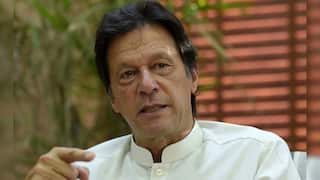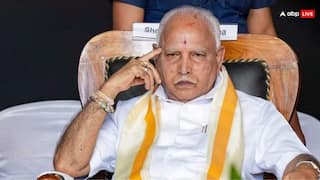Centre Pushes Back Against Russia's Demands To Pay For Oil Imports In Yuan: Report
Indian Oil Corp., the biggest state refiner, had made a yuan payment for Russian crude in the past, although the government has since clamped down on that.

The government is rejecting pressure from Russian oil suppliers to pay for crude imports in the Chinese currency as tensions between New Delhi and Beijing continue to simmer due to border disputes, Bloomberg reported. According to the report, some Russian oil suppliers are demanding payment in yuan, according to a senior Indian official directly involved in the negotiations and another senior person at a state-owned oil refiner.
Citing two government sources the news agency said almost 70 per cent of India’s refiners are government-owned, which means they would need to follow orders on payment instructions from the Ministry of Finance.
Indian Oil Corp., the biggest state refiner, had made a yuan payment for Russian crude in the past, although the government has since clamped down on that. Private refiners could also settle payment in yuan, although there are no official or industry figures to show the magnitude.
Russia has an excess supply of rupees, which it’s struggling to use, while at the same time its demand for yuan has grown sharply in the past year as the economy becomes more reliant on China for imports. Russian businesses have been settling more of their trade in yuan, with the Chinese currency this year replacing the dollar as the most traded currency in Russia.
Indian refiners mostly pay for Russian oil imports in dirhams, the currency of the United Arab Emirates, US dollars, and a small amount of rupees, if oil prices are above the $60 a barrel cap imposed by the US and its allies on Russian oil. While the yuan is sometimes used in smaller transactions, Russian oil suppliers are requesting that the Chinese currency be the main unit of transaction for oil trade, according to the senior government official.
An executive from an Indian oil refiner told Bloomberg that payment for about four to five cargoes had recently been delayed because the parties involved failed to agree on the currency of exchange.
India’s resistance to transacting in yuan underscores its difficulty in balancing relations between Russia, an important economic ally, and China, a geopolitical rival. Russia is now the top crude supplier to India, making up almost half of the India’s purchases. At the same time, relations between India and China have remained strained as border disputes in the Himalayas continue to simmer and as the world’s two most populous nations vie for global influence, especially in the developing world.
Russia has accumulated billions of dollars worth of rupee assets given its wide trade surplus with India, but it’s struggling to use the funds. The rupee isn’t a fully convertible currency internationally, making it difficult to use in global trade. Russian Foreign Minister Sergei Lavrov said in May the build-up of rupees is a “problem” and discussions were taking place on how the funds can be transferred into another currency.
Top Headlines






































